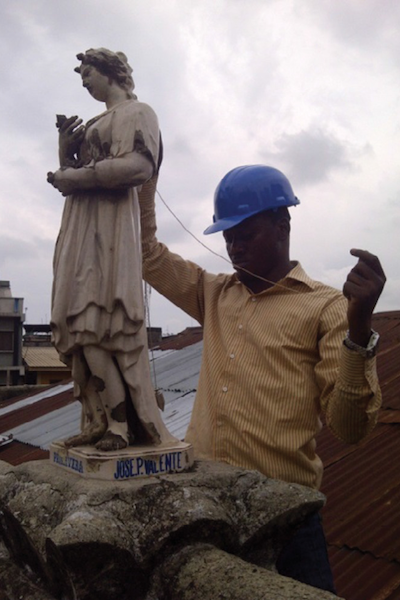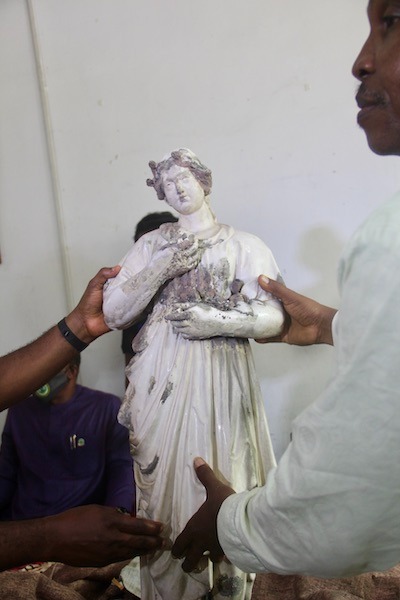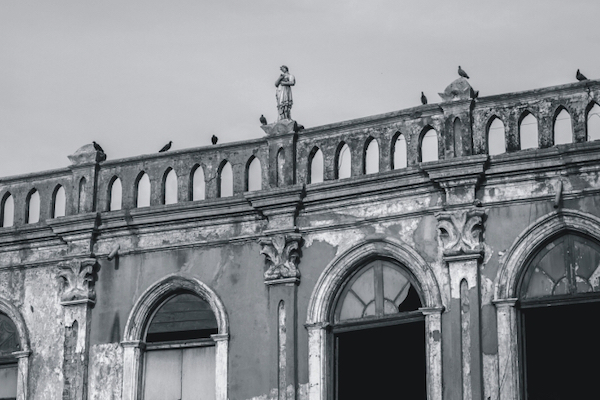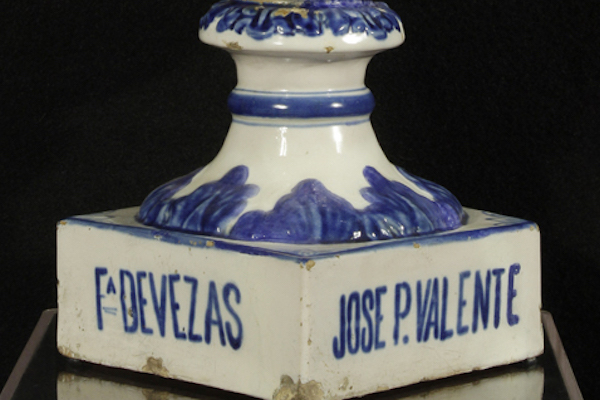The Angel
Guardian of Ilojo Bar: Unveiling the Angel's Story
They called me the Angel, even though I never had wings. For more than a century I had been watching them from the roof of the big house that Señor Fernandez had built. I was standing on my colonnade longer than any Lagosian alive. I had been there for such a long time, that I took the view of Tinubu Square for granted. How could I have known that the hammers of demolition would one day come for me?
I am no stranger to darkness. When I started my journey across the Atlantic over 130 years ago, I was put in a crate that was nailed shut, blocking out all light. My only solace was the fragrant straw my packers had surrounded me with, that smelled of meadows and summer. You'll have to forgive me, but being boxed in, I could not tell you much about the journey that followed. Did the ship I embarked on go straight from Portugal to Lagos? Was I taken to Brazil first? I don't know. But I can tell you one thing: reaching the final destination felt like a liberation.
Once the workmen chiseled open my pinewood prison, letting in the first rays of exuberant equatorial sunlight, I knew I would enjoy this place. They then hoisted me two floors up, onto the roof of that brand new neo-classicist building, and I caught the first admiring glances from passers-by on the square below. From my viewpoint I saw everything that happened down there, for decades and decades and decades to come. The stories I could tell: I witnessed the coming of the automobile, the leaving of the white men and the bringing and taking of the light. But I am getting ahead of myself. The darkness in my current hideaway makes it hard for me to focus.

Let me tell you where I came from. My Portuguese creator Senhor José Perreira Valente had just left the company that taught him all there was to know about ceramics, and had opened a new workshop across the street in Porto. He produced many statuettes like me that I hear until this day embellish houses and gardens in Portugal and Brazil.

Originally, I was not meant to be by myself. There were four of us, telling the allegorical tale of the seasons. I was Spring. So I am not an angel, even though they used to call me that. My name is Primavera. But I did not mind that Lagos fantasised wings on my back and baptised me differently. They could, after all, only see my front, my whiteglazed ceramic skin reflecting the sunlight. I had a much better view of them, than they did of me.
His friend and business partner Napoleon Rey Couto who had come to Lagos on his invitation, seemed much more at home in the tropics. He married a local woman called Joanna, and he was the one effectively running their company Fernandez & Co, known in all of Yorubaland. I was not surprised when Señor Fernandez left for good to go home, and sold his part of the house to Mr Couto in 1914. It was a sad day when he died on the 9th of March 1918. When I saw the coffin leaving the house for Mr Couto's last journey to Ikoyi Cemetery, people down there were paying their respect. Mr Couto had come as a foreigner, but the Lagosians mourned him as family.
It took a long time for the house to find a new owner: it wasn't until 1933 that a wealthy trader from the east bought Casa do Fernandez by auction for £ 2,500. Mr Alfred Omolana Olaiya was in Calabar at the time, and I don't think he ever saw his new property: he fell ill and died a year later, leaving behind eight wives and many children. When they moved in, little by little, it was the first time I heard the Yoruba language under my roof.
The family also brought music. From the restaurant they opened downstairs, Ilojo Bar, I heard the sounds of highlife and juju. Juju pioneer Ayinde Bakare played under my roof, and one of Olaiya's sons would become a famous highlife musician. He eventually opened a shop for musical instruments on the ground floor. King Sunny Adé bought his first guitar in that shop, for one pound and nine shillings. You will understand that even I was a star struck by seeing so many celebrities going in and out of my building.

In the decades after that, I saw houses older than mine being pulled down, homes built by the hands of the returnees who had come back from slavery in Brazil in the nineteenth century and had changed the face of Lagos. The same hands, I was told, that built the house I was crowning. But I never worried. I even did not worry when in 1960 they demolished the supreme court on Tinubu Square, that had been build a good decade after I arrived in Lagos.
They liked me too much, you see? In 1958 a British man with a white moustache who liked old things, Bernard Fagg, had given my house a special status. It was declared a National Monument, and no one was allowed to touch me anyhow. The Brits even wanted to buy me from the Olaiya's to start a museum for the independence celebrations. For a reason I don't know, that plan fell through.
In the decades after the British left I started seeing military uniforms on the streets around me. I heard soldiers had taken power, and they did not see the beauty of an old building like Ilojo Bar, however famous it was on Lagos Island. It was only when democracy came in 1999, that the rulers started admiring the baroque consoles on my house's facade again. Two new governors of Lagos State even contemplated buying the house from the Olaiya family. They the last one who tried walked out of the negotiations in frustration because the price the family asked was not realistic in his opinion.
In the mean time, things had started crumbling underneath me. When the glass of the french doors opening on the balconies broke, they were no longer replaced or only with cheap plywood. And the cast iron balustrades stripped of all paint were rusting away. The National Commission for Museums and Monuments who was responsible for the state of the house, never had the money to maintain it the way it should be. And the family was not allowed to do anything without their permission. Interior and exterior were left to the elements.
I started hearing mutterings in the house. 'They should tear this ruin down', they said, and 'kini egbin owo'. From those Yoruba words I understood that some of them thought having such a small, crumbling building on that prime location was a waste of money. They wanted skyscrapers! Shopping malls!
There was a spark of hope, when suddenly scaffolding arose around the house and people with yellow safety helmets and tapelines climbed around, measuring every inch of me. There was talk of renovation, but the helmets and the scaffolding went and nothing ever came of it.
Still, I did not worry. I knew I was protected by law. I did not realise that some of the family had been plotting with some of the authorities. Civil servants were paid to forget for a moment that the law protecting National Monuments for demolition existed, and give off a demolition permit. And even though that permit would be quickly retracted, it would prove to be too late.

They came on an early Sunday morning in September 2016. The developer came with his bulldozers and hired soldiers to tear down Ilojo Bar, my beloved Casa do Fernandez. Nobody was around who could save the house. When I felt the demolition hammer ramming me off my pedestal, splintering half of my legs, I thought that was it. I would be turned into the same kind of dusty rubble as so many of the nineteenth century buildings I had seen demolished around me. But the demolition men wrapped me – or what was left of me – in a musty linen cloth, carried me down the stairs and loaded me in a car.
That's how I was taken out of the light on 11 September 2016. I was hidden away in the dark somewhere for over four years. They even tried to sell me, but then the people who like old things convinced them to return me to the National Commission, the institution that should have taken care of Casa do Fernandez in the first place. After all, I was the only known thing left of the building. Right after demolition, even the wrought iron balcony ornaments had been sold on the streets for as little as 700 naira.
So now I am in the dark again, in a depot in Onikan. I am lying down because in the demolition half my legs were clobbered off and the pedestal that used to carry me was lost all together. They say Ilojo Bar will rise again. I don't know if that is true. But I can tell you that I cannot wait to be back in the light. After all, someone called Primavera should not be left in darkness.
